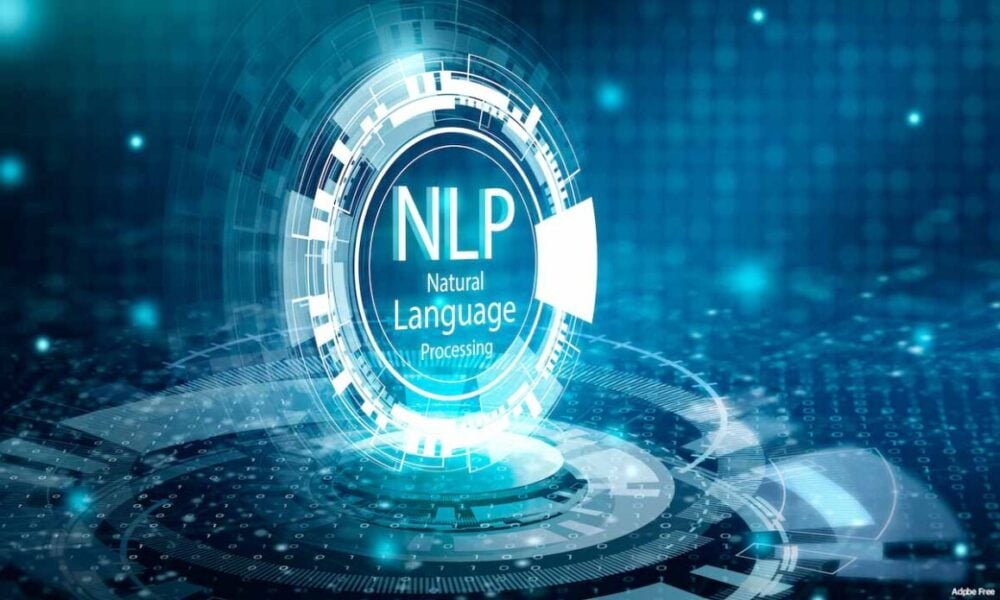Marketing
6 Ways Businesses Benefit from Natural Language Processing

Natural language processing (NLP) is a subset of artificial intelligence (AI) that helps computers understand, interpret, and communicate how humans do. Because of those abilities, industries worldwide have leveraged NLP to upgrade their operations and customer relationships.
While figuring out the best data science language for NLP can be quite tricky, considering most people are undecided about the R vs. Python debate, companies aren’t hindered from pursuing NLP because of its glaring benefits.
If you’re considering using NLP but doubt it’s right for your business, this business blog article is for you. Here are the benefits of NLP in business.
Six Benefits of Natural Language Processing
1. Businesses can respond to customer requests fast
NLP chatbots can boost customer support and service efficiency by giving fast, accurate, round-the-clock replies to your shoppers’ queries and concerns. Chatbots can do that due to their machine learning capabilities, which are augmented with fundamental meaning.
These abilities empower NLP bots to understand the complexities of human conversations, definitions of terms, and the tone and context within every interaction, plus any technical knowledge needed to reply sensibly and accurately.
You can best use NLP bots for specific customer requests with large volumes, similar use cases, and predictable and well-known solutions. These requests include product installation and troubleshooting, assistance in power outages and lost internet connections, finding the best travel packages, checking order status, and more.
Additionally, NLP bots can give human-like, conversational responses to make the interaction sound more natural and resonant with your users. This, together with speedy responsiveness, boosts your customer satisfaction.
2. They can report trends to make smarter business decisions
Businesses can use NLP to surface performance forecasts and conduct predictive analytics from relevant historical data. From your previous performance data, ML technologies can identify the likelihood of future trends or outcomes and help you make smarter business decisions on both micro and macro levels. You can use NLP to ask your business intelligence platform questions about these predictions.
For instance, if you’re at a financial institution, chat or voice-powered NLP interfaces can support your assessment of customers’ digital footprints when studying their demographic profiles, social media posts, browsing behaviors, and geolocation details with a good credit score.
This allows you to quickly ascertain whether people qualify for loan or mortgage applications, even if they do not have past banking records. On a macro level, if you have a million banking clients with a mortgage, you can apply analytics to segregate the high-risk group and use NLP to unearth the rate of funds you can most likely recover in a given timeframe.
These predictive data and NLP-generated synopses of the financial markets can help you foresee risks and strategize accordingly.
3. They can extract value from heavy documentation
International Data Corporation estimates that, by 2025, 80% of all business data will be disorganized and ineffectual for businesses. Whether it’s policies, reports, contracts, or others, companies frequently wrestle with efficiently categorizing these documents and using them to produce valuable outputs.
However, by maximizing NLP, you can make sense of the volumes of data, glean actionable insight, simplify jargon-filled and technical explanations, and get the gist of the documentation.
NLP also helps you access accurate information and streamline your workflows, especially when you have various fields of expertise involved in your operations. Suppose you work at an aviation company, and your pilots file safety reports. They are likely to describe specific repeated issues differently from mechanic engineers.
As a result, these engineers can have a longer and more challenging time processing the reports and their work implications. NLPs can study the documentation for them and make it more easily understandable. Along with supplementary metadata, NLPs can show the engineers where to search for the needed information, resulting in higher operational productivity.
4. They can improve HR processes
You can use NLP to refine your recruitment, employee retention, and other processes related to managing your human resources (HR). For example, for recruitment, your NLP technologies can scan and sift through volumes of application letters and curricula vitae and evaluate applicants’ skills, relevant backgrounds, and traits – all while trying to remove human bias.
You can set up your initial selection rules and criteria so your NLP systems can objectively screen the applicants, narrow the list to the best prospects, and qualify them for the following stages.
For your personnel, NLPs can gather and analyze their feedback from your survey about their working conditions, relationships with their superiors and subordinates, and other aspects of work. The responses allow NLPs to gauge your employee satisfaction level and offer necessary insights.
This helps you identify overlooked needs and develop strategies to retain your staff.
5. They can initiate and engage in sales conversations effectively
NLP bots help create and engage in customer chats that can yield sales and conversions. NLP chatbots can humanize sales questions and interactions, talking like people to make your customers more comfortable conversing with your brand.
Upon landing on your page, these bots can ask visitors how they can assist them and what they want to do on your site and others. They can provide the necessary information, invite potential customers to set appointments, and follow up on unresponsive visitors (through a programmed sequence).
Additionally, with machine learning, NLP chatbots can collect and use stored data to personalize conversations.
They can also ask questions and consider previous interactions to provide your customers’ needs with the most suitable solutions and offers.
6. They can obtain marketing and competitive intelligence
Getting intelligence using NLP is one of the advantages your business can expect from AI. For one, you can collect and consolidate marketing data from various sources and wield them to build compelling promotional campaigns.
NLP can support your efforts to collect data on your competitors, such as their industry performance, strengths and weaknesses, and reasons customers choose their products over yours.
You can employ NLP to conduct sentiment analysis to assess your market performance. They can gather customers’ thoughts and feedback about your products from surveys, polls, customer interviews, and other instruments.
NLPs can even help you determine your competitive gaps, which serve as business opportunities or white space (discovering your customers’ unspoken and unmet needs that can stimulate product innovation). From your customers’ sentiments and white space, you will know how to improve your products, sell them, and what offers will be most attractive. You can also find new audiences.
Other marketing data from NLPs include the channels with the most customer touchpoints, ways to keep your buyers, shopping behaviors, and attitudes. Armed with this information, you can properly allocate your resources to get the best possible results regarding sales, conversions, profit, and other performance indicators.
Leverage NLP for your business.
NLP has a far-reaching impact when you use it to enhance operational efficiency, product development, and shopping experiences.
Leverage NLP to improve buyer relationships, brand perception, marketing performance across multiple channels, and audience reach. It’ll be worth your investment as it supports your efforts to achieve your business goals in the short and long run.
Final Thoughts
Natural language processing (NLP) can automate various tasks in your business to improve sales and reduce costs.
Improving your website’s search engine optimization (SEO)
Understanding the user’s intent and providing relevant results can enhance your website’s ranking and visibility.
Create Chatbots
Did you know NLP can also be used to create chatbots that can interact with customers on your behalf? NLP can provide intelligent answers to customers’ questions.
Automatically Generate Reports
Natural language processing can automatically generate reports from data sources or analyze customer sentiment from social media posts.
The possibilities are endless. Natural language processing can help you make sense of data and find ways to improve your business if you have data.
Scan Documents
Natural language processing can be used to scan documents and extract information automatically. How many hours do your employees spend on reading documents? You can assign staff hours to higher-value tasks than reading and manual data entry and leave NLP to the job.
Improve Customer Service
NLP can also analyze customer feedback and generate insights that can help improve your products or services. By leveraging NLP, you can gain a competitive edge and improve your bottom line.
Marketing Prowess
All businesses need to know why digital marketing is essential so they can use NLP to get ahead of their competition. Customer discovery and analysis can distinguish between marketing campaigns that engage and create leads and sales and those that fail to meet your marketing goals and expectations.






